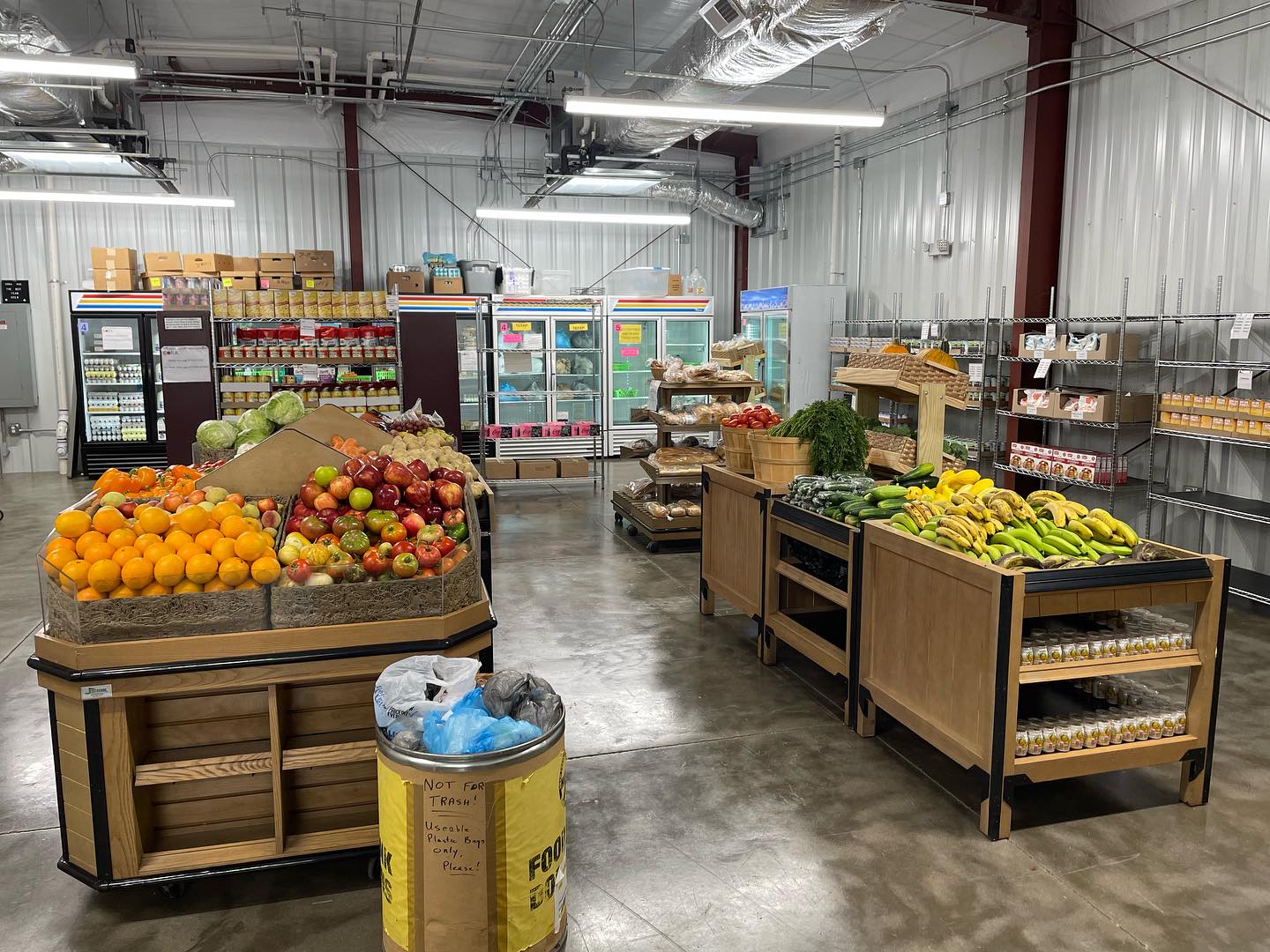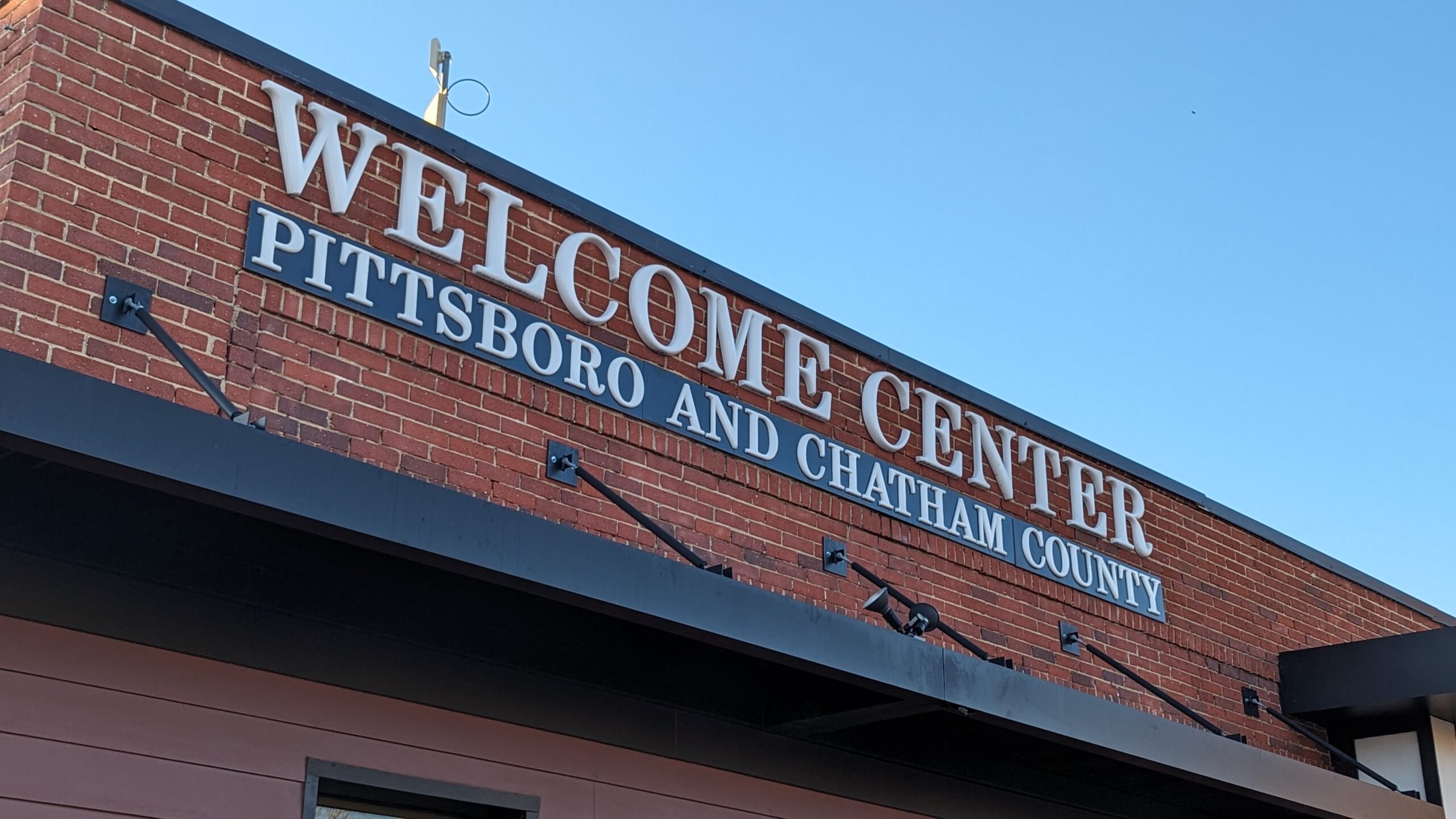![]()
By Zachary Horner, Chatham News + Record Staff
As North Carolina begins to lift some of its restrictions on companies and more people are out and about, the News + Record sought responses from local businesses about how COVID-19 has affected them. Here’s what we learned from them.
Everyone was affected
Each of the eight respondents to a survey distributed to owners said their business was affected “in a significant way” by the pandemic, and one of the most consistent ways was financially.
The Small B&B Cafe in Pittsboro has experienced an 85 percent decrease in revenue. The Rojo Canela restaurant in Siler City lost 70-80 percent of its revenue and “might have to close.” Another restaurant, whose operator wished to remain anonymous, saw a 50-60 percent drop revenue.
Losses weren’t limited to restaurants and breweries. Revenue for Pittsboro’s Trader Chris Consignments, operated by Chris DiGiovanna, is down between 65-75 percent.
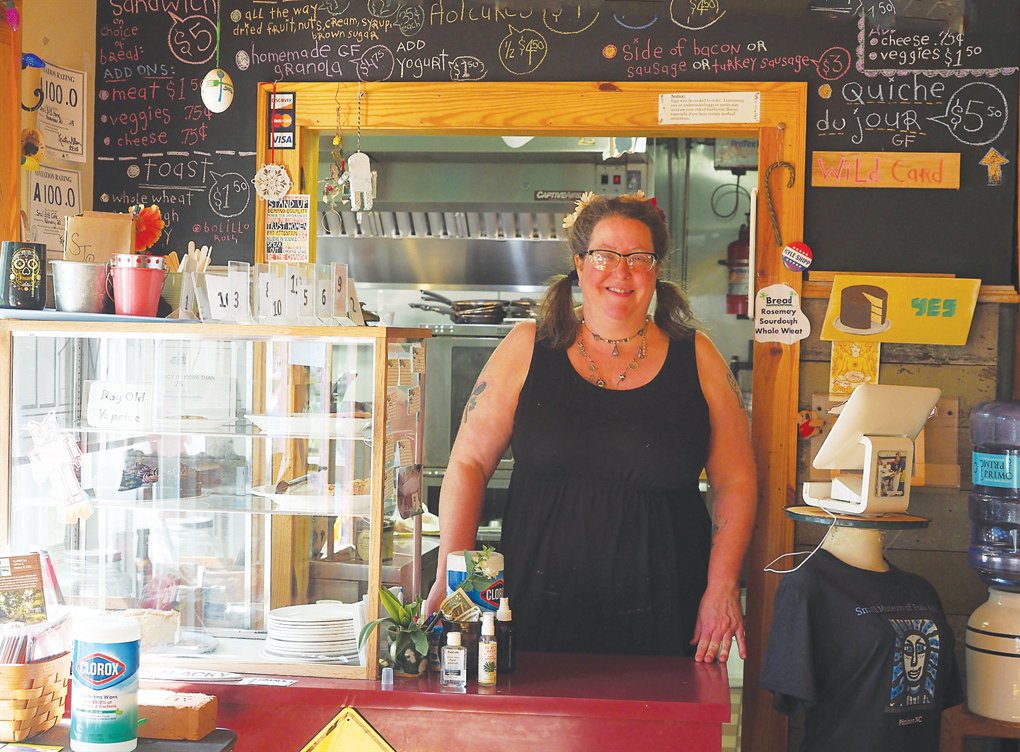
Lisa Piper of the Small B&B Café in Pittsboro said the business has been making efforts to donate food to frontline health workers, children and seniors during the pandemic.
“Typically, the spring is the busiest time of year for me,” DiGiovanna said. “April was the worst month for me revenue-wise in many, many years. I am concerned about being able to keep my business open long term with much lower revenue right now.”
But not all businesses have seen decreases. Chatham Marketplace, the co-op grocery store in Pittsboro, has seen a year-over-year sales increase of 37 percent, according to store manager Evan Diamond.
“We’re a grocer, so sales skyrocketed initially and have settled at a significantly higher sales volume,” said Diamond, who cited Chatham Marketplace’s role as an “essential” business. “Many customers are coming to us to support local business, shop in a safe environment, and shop somewhere with less foot traffic.”
Operations change
Every business owner who completed the survey said their operations had to change, with effects ranging from increased sanitation guidelines to changing how services are provided. Diamond said Chatham Marketplace reduced hours and introduced “flexing employees around the store to new positions.”
The Pittsboro Youth Theater moved all five of its youth and adult play casts to online rehearsals and began producing online performance videos. But that hasn’t been good for the bottom line.
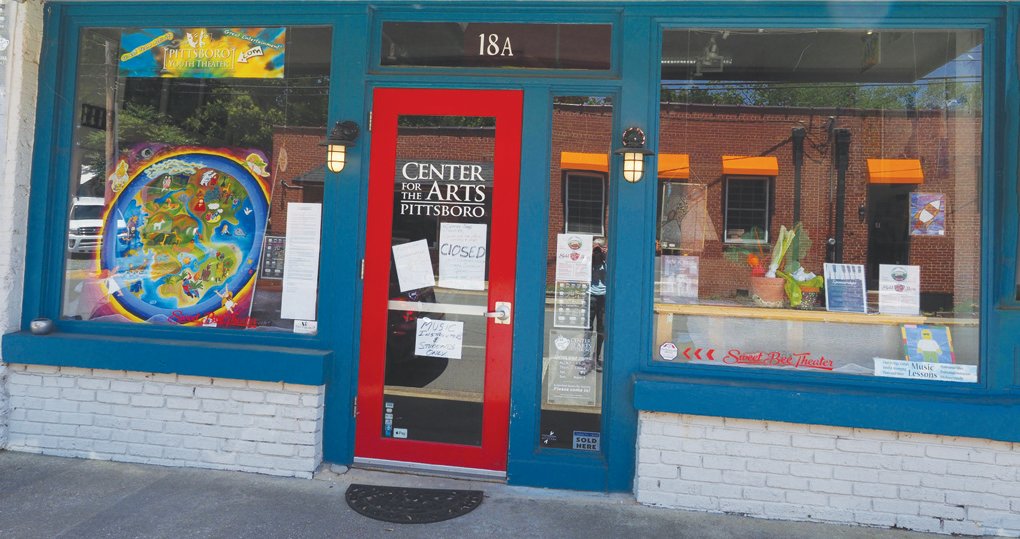
The Pittsboro Youth Theater ceased activities on March 16 and moved all cast rehearsals online. Craig Witter, one of the theater’s operators, said that all shows will ‘be performed one way or another, either before a live audience or virtually, as soon as possible.’
“Pittsboro Youth Theater’s entire family of community arts organizations is self-funded,” said co-operator Craig Witter. “We boot-strapped ourselves into our current condition, which can best be described now as ‘strapped.’ Suffice it to say, if our family of arts organizations were a medical patient today, we would be in ‘serious’ condition.”
May is the traditional “show time” for PYT, but May is almost over, and with no performances on the schedule, that’s a significant amount of lost revenue. Witter said the theater will lose out on ticket sales, which average $10,000 each season, and concession snacks revenue, around $2,000.
Multiple businesses said they might have to close or have at least considered the possibility. Becky Starr of Starrlight Mead said she and her husband Ben had considered closing, but “luckily” some financial help has come in to prop up the operation. Debbie Wolf of Nericcio’s Family Restaurant, which opened six months before the pandemic hit, said the business has adapted to the carry out and delivery operations which are allowed by the state for restaurants.
PPP, EIDL and all the rest
Seven of the eight businesses applied for the Payroll Protection Program and/or Economic Injury Disaster Loan initiatives from the federal Small Business Administration, with experiences varying.
DiGiovanna said he applied for both, and got help from the PPP in the second round of funding. The owners of Rojo Canela applied, according to Don Manchas of the restaurant, but did not receive any funds. Wolf said Nericcio’s received PPP funding, which has helped keep the restaurant operational.

Ben and Becky Starr, the proprietors at Starrlight Mead in Pittsboro, say they’re trying to remain optimistic during the COVID-19 pandemic, but are facing obstacles of their own. The meadery’s tasting room is closed to all events and tasting.
“Without the loan, we would not have been able to stay open,” she said. “We are concerned with the long-term ability to remain open if things remain the same. We are looking forward to our outdoor seating being open.”
Starrlight Mead’s borrowing process was odd. Starr said it applied for PPP through the bank that held its prior SBA loan, and the bank was “great and communicated with us through out the process.” That money allowed the meadery to, in some capacity, bring back all the employees it had previously laid off.
“EIDL was another story,” she said. “I applied, didn’t hear anything for awhile. Got an e-mail saying that we couldn’t get the $10,000 Rapid Recovery and they would only pay $1,000/employee. Then didn’t hear anything. Got another email saying it was in line to be processed and that we’d get an email if our status changed. Then about a week later, the money showed up in my bank account with no notice!”
Diamond said Chatham Marketplace had a similar experience: the PPP process was smooth and painless, but EIDL was “not seamless.”
Reflecting on the situation
Businesses have had to make adjustments to sanitation and cleaning procedures due to COVID-19, and none of the eight that replied to the News + Record’s survey said guidance given to them was overbearing. Four respondents said advice from the Chatham County Public Health Departments and other agencies was “helpful,” with seven of eight calling it “appropriate.”
“Extra work to keep people safe,” Witter said, “is fine.”

Leo and Aidee Davalos, the owners of Rojo Canela in Siler City, said they’re able to stay open during the pandemic because they own the building the restaurant inhabits.
DiGiovanna said he believed the restrictions put in place and the stay-at-home order were “necessary to keep people healthy and safe,” but came with coincidental consequences.
“I own a non-essential business, but I work from home now and can handle business without coming in direct contact with clients anyhow,” he said. “But it obviously puts a lot of strain on small businesses that rely on person-to-person transactions.”
The future is not pretty for everyone. Manchas said the situation “does not look too good for restaurants” because, he believes, “customers will be afraid to come to restaurants.” But most are trying to be optimistic.
“We’re hopeful,” Starr said. “We’re celebrating our 10-year anniversary in September, so we’re aiming for that. We’re also trying to plan events for after we are able to open back up again.”
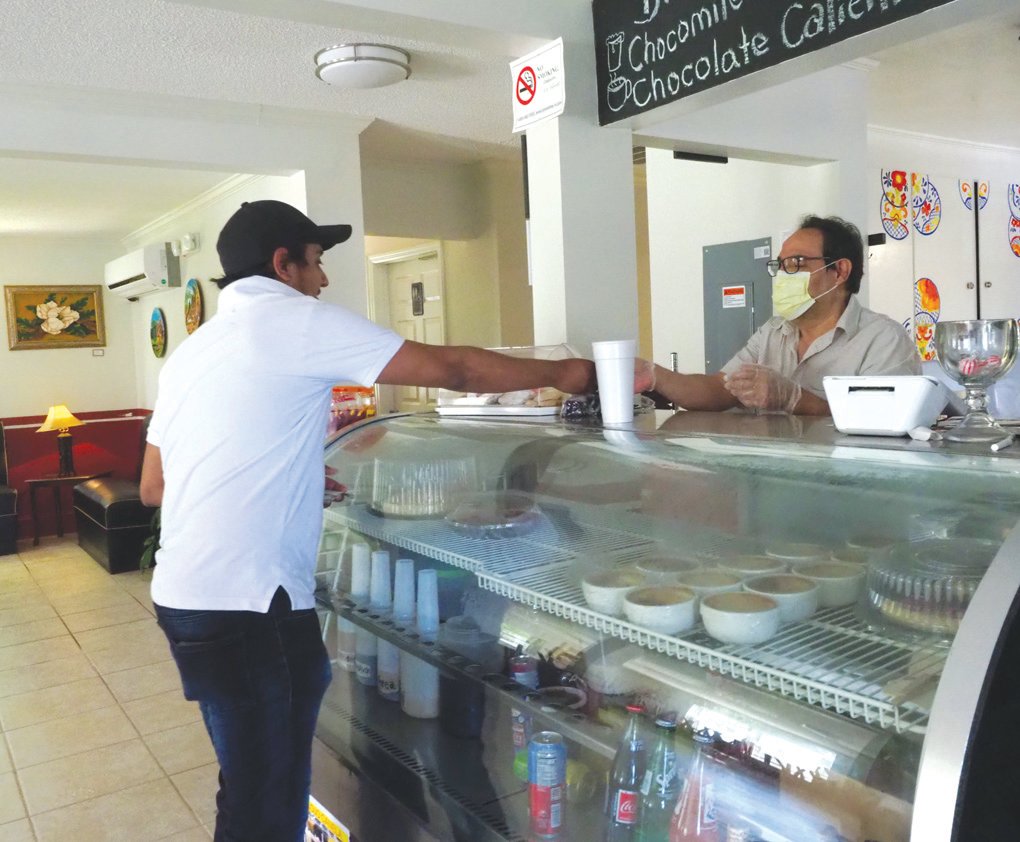
Manuel Peta of Siler City grabs a snack this past weeked at Nericcio’s Family Restaurant in Siler City. The restaurant has begun doing free delivery within 10 miles of its location.
But even in that optimism, there’s still a caveat or two.
“The only caveat is if our local community becomes overwhelming ravaged by economical hardship and feels they can’t afford our products,” Diamond said. “I still believe that with our size, we will be able to pivot and meet that change if it comes, but it will mean reduced sales and scale of operation.”
Chapelboro.com has partnered with the Chatham News + Record in order to bring more Chatham-focused stories to our audience.
The Chatham News + Record is Chatham County’s source for local news and journalism. The Chatham News, established in 1924, and the Chatham Record, founded in 1878, have come together to better serve the Chatham community as the Chatham News + Record. Covering news, business, sports and more, the News + Record is working to strengthen community ties through compelling coverage of life in Chatham County.

